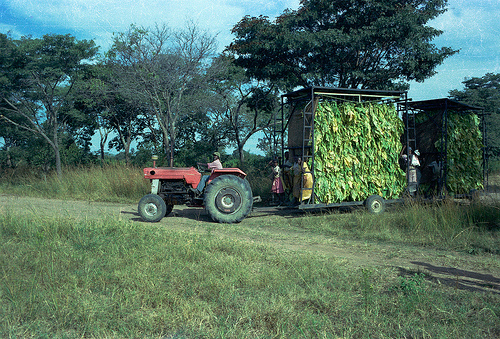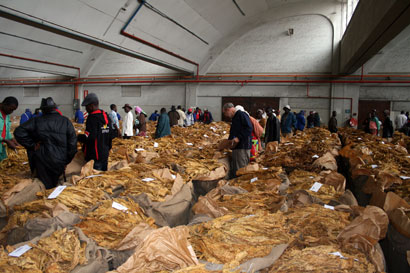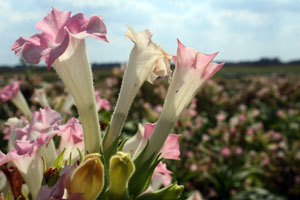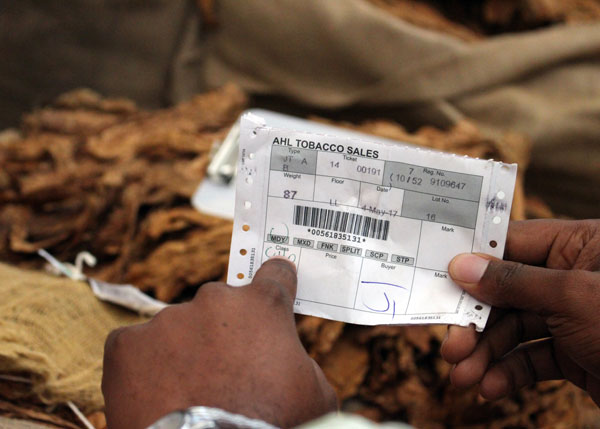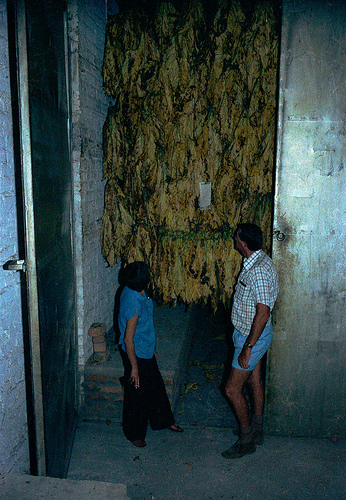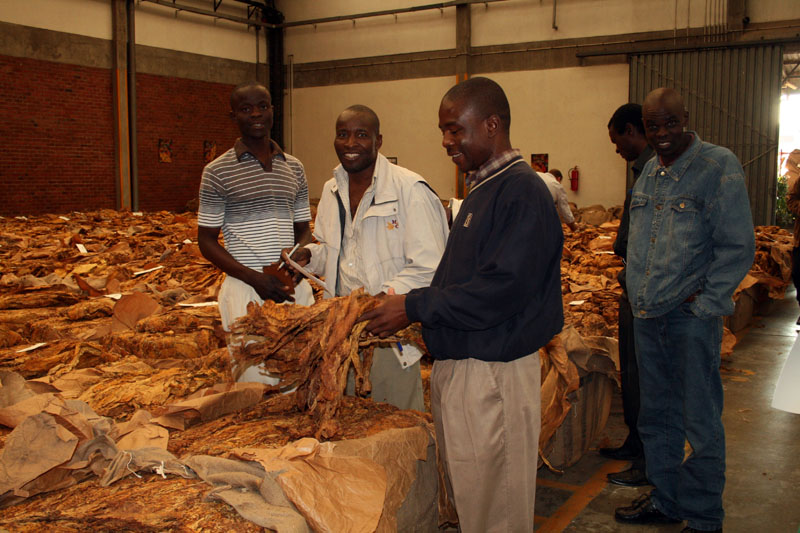Zimbabwe’s flue-cured tobacco growers are this year ahead by three US cents per kg on where they were last season.Read More
Tags :Zimbabwe
It might seem obvious that sin taxes should be used to reduce sinning and help mitigate against the negative effects of sinning. But mostly, such taxes are not ring-fenced in this way. Read More
So far, the average per-kg price paid to farmers in Zimbabwe for their flue-cured tobacco is running two US cents ahead of what it was at the same stage of last season’s sales.Read More
Grower prices for Zimbabwe’s 2017 flue-cured tobacco crop are at the same level as they were in respect of the 2016 crop.Read More
There has been a big increase in new farmers registering to grow tobacco in Zimbabwe during the 2017-18 season.Read More
The once-famous tobacco research station at Kutsaga, Harare, is struggling with problems created by underfunding.Read More
Grower prices in Malawi are said to be ahead of those of last year because of the quality of the leaf on offer, but in Zimbabwe, where quality is also good, prices are down.Read More
The average grower price paid for Zimbabwe’s flue-cured tobacco is this season down on that of last season, but there is an even bigger headache looming.Read More
After 36 days of sales over Zimbabwe’s contract and auction floors, farmer prices for flue-cured tobacco were down two percent on those of 2016.Read More
Zimbabwe’ s flue-cured tobacco growers have been paid an average of US$2.76 per kg for the 70 million kg that they have so far delivered to market.Read More
